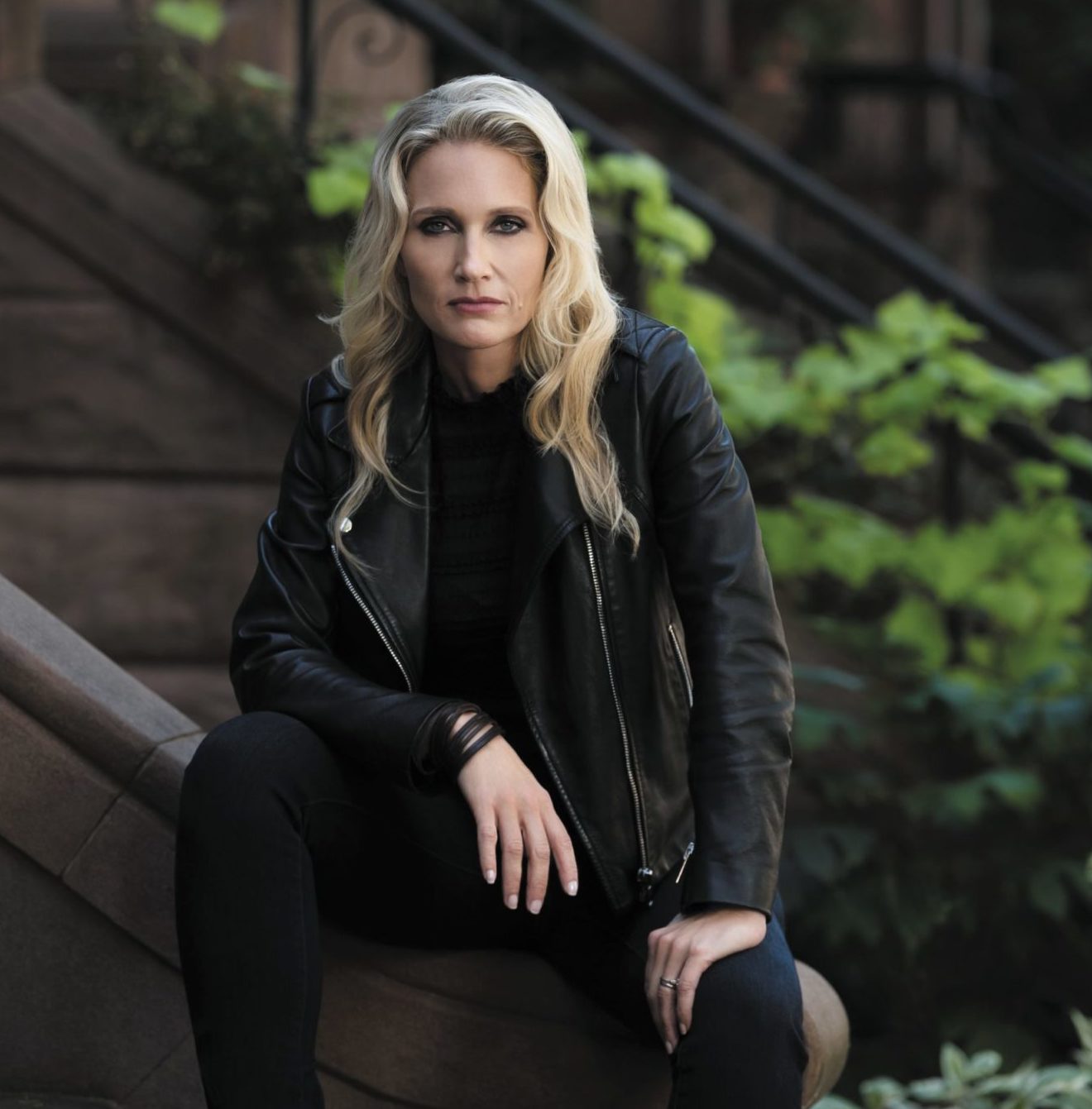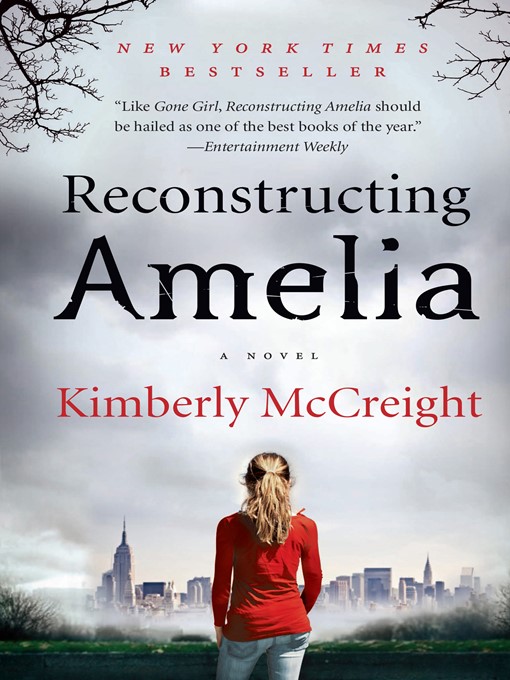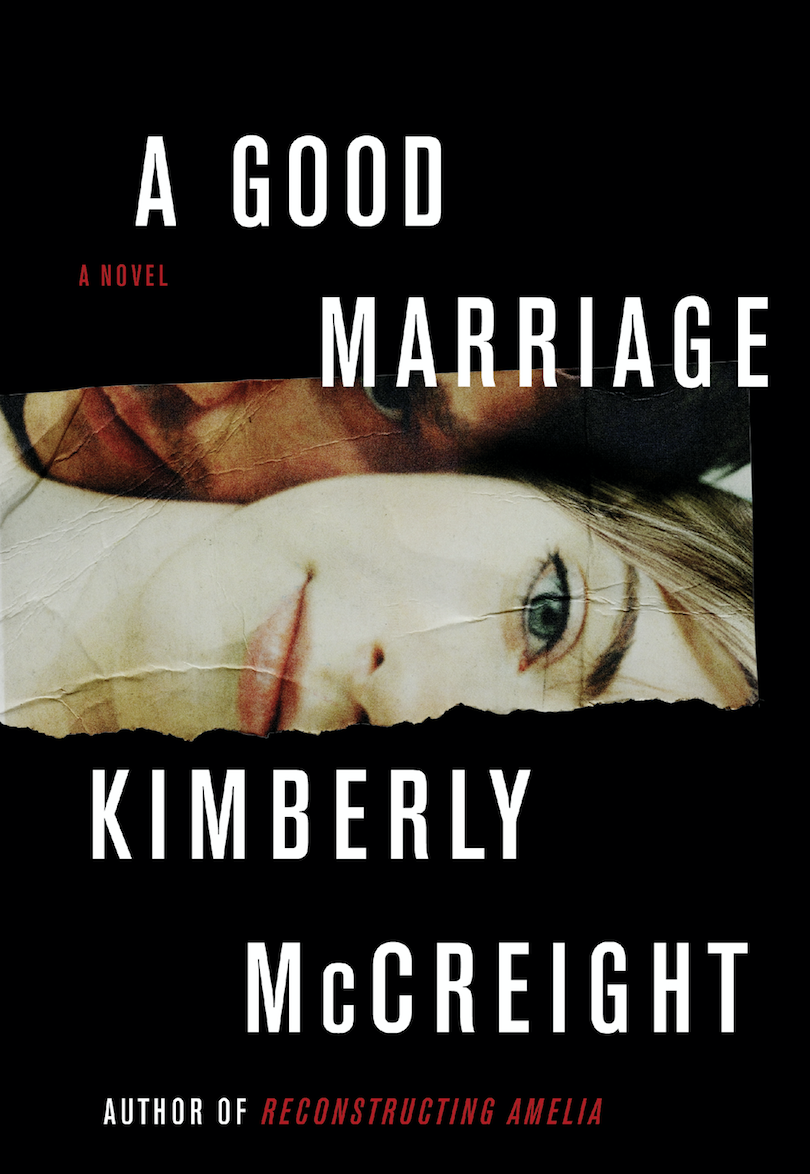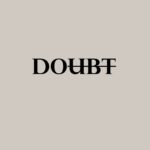What does it mean to chase a dream relentlessly and when is quitting your dream a good choice? These are some of the topics I explore with New York Times bestselling author Kimberly McCreight during our interview. We go deep as she talks about her writing career and the journey that preceded her first published book, Reconstructing Amelia. We also talk about her most recent book The Good Marriage (which came out on May 5th). Kimberly’s story is inspiring and she shares profound knowledge and gives advice that is priceless to writers and creatives in general. I believe this interview resonates with many readers of Clever-ish Magazine, read below.

Reconstructing Amelia is one of your best works and has garnered praise and recognition including being a New York Times Best Seller. I’ll like to know: How did it come to be?
At the time I started to write Reconstructing Amelia I had young daughters at the time, they were three and six, and I have found mothering to be a real challenge and a frightening experience. I wish there was a different word, but that’s probably the best word to describe it. Just very intimidating. So I thought, how are we —my two daughters and me— gonna make it through this process? I was interested in exploring this theme and I knew that once they got to be teenagers that it would only get more complicated because the teenage years is this period of time where your kids supposedly start keeping secrets from you. So when I sat down to write Reconstructing Amelia I focused on that as a theme.
I began with really wanting to write a story about motherhood and a character struggling to be a good mother in addition to dealing with the realities of being a working mother. My character is a single mother in that book and part of the reason I did that is that otherwise, it would become a book about grief shared between a couple. So it wasn’t specifically meant to be about single motherhood, but I wanted it to be more about motherhood than about marriage.

First I was going to write a book just from Kate’s point of view and then I ended up adding Amelia’s. And so once I had written Amelia, she really resonated as a character and she ended up equally weighted with Kate. Sometimes you create a new character and that character —not to sound like a pokey writer— control’s you and hijacks the storyline.
Before Reconstructing Amelia I had had four other books rejected. So I was finishing the book with the thought that I might not keep trying to write books. I used to be a lawyer, so I was contemplating my next career move. But what happens when you’re a writer is you just keep writing. So I kept writing.
Have you always wanted to be a writer or was it something you stumbled into?
I came from a sort of troubled family background and so I was always cognizant of the fact that I would need to be able to support and take care of myself. Early on, I knew I had to get a career in which I’m going to be able to pay the bills. So going into the arts didn’t really factor into my solution set.
I had my first experience writing in high school. I wrote my very first short story because we were reading A Tale of Two Cities and I was supposed to write an essay but I couldn’t figure out how to write the essay. So I wrote a short story from the perspective of a young French girl instead. I had never written a story before my life.
I had a beloved high school English teacher who was incredibly supportive. She accepted it and ended up submitting the story to the University of Iowa for a short fiction contest for high school students. It did not win, I will tell you that. But she was really supportive and she encouraged me to be a writer. But I thought: who does that? That’s not a job. So I pushed it off.
Then I went to Vassar for college which is a very creative place. I had friends that had already published all sorts of things like short stories, poetry, etc. But I did other things instead. I was a double major in psychology and Asian studies. I spent my junior year abroad studying Japanese and at one point I thought I was gonna be an architect until I realized that you have to do math. I think there was a part of me that realized I wanted to do something creative. But I kept pushing writing away. It just seemed ridiculous.
So what changed? So how did you end up being a Lawyer?
Because of the way I had grown up I craved security. My assessment at the age of 19 about what it means to be a writer as a career path was fairly accurate. It is extremely speculative. I mean the creative arts, it’s not a secure career path. It never is. It’s not like once you get an agent or once you sell one book or once you sold two books. I had also always been interested in law —law like on TV. I liked movies about lawyers so I took the LSATs and scored extremely well. So I ended up in law school a bit by default. And I will say that I absolutely loved law school. Legal education is an amazing thing. I went to the University of Pennsylvania law school, which is a national law school, which means you’re learning and dealing with big theoretical issues. You’re reading Supreme court cases and debating abortion rights and the right to search and seizure and social justice. Law School was fantastic.
you have to be cognizant of what you can take and ask yourself: does the sadness of giving up outweigh the sadness of the chase?
I also liked the fact that it was very clear, you know. It gave me all the things I wanted. You study hard, you work hard, you get good grades once you’re out of school you were guaranteed a great job. The economy being what it was when I went to law school so I had my choice of jobs. But then the reality is you have to do that job.
What was that like when you started working as a Lawyer?
If you talk about your quarter-life crisis I was probably about 25 when it hit. I had this great job at Swaine and Moore which was one of the best law firms in the country. I had a great job and a great apartment in New York and then it hit. I thought what the fuck? This is my life and I have to do this forever? I started to ask myself whether or not I was happy. I moved to a different law firm called Paul Weiss where the culture was a little bit more comfortable for me. It’s a more liberal law firm. I did get to work on some interesting things there and people were so smart but even still, I knew it wasn’t what I wanted to be doing.
Was that when you decided to quit being a lawyer and go into writing full time?
It’s not like something had come along and made the idea of being a writer seem more plausible. My fiance at the time, now my husband, got transferred there for a year to London. I took a leave of absence and deferred my law school loans. I had about $250,000 in law school loans that I had to pay back.
you have to balance your own happiness on any journey
I wrote my first book in London that year and that was really when I first started trying to be a writer. But as I said, there were many many books and many years of writing before Reconstructing Amelia. It was a decade before Reconstructing Amelia sold. I went back and worked for about another year, but I did end up quitting being a lawyer entirely. At that point, I was married. I had a husband who was willing to go in on the hope that I would make it eventually. That makes me really lucky because again, going back to the idea of: how do you become a full-time writer? You find a way. A lot of people support themselves with being teachers and having the summer off or finding other ways to pay the bills. I was lucky to have somebody support me so I don’t want to hide that fact because it’s an important part of the story.
I think the struggle is an important part of the process that a lot of people don’t share. So thanks for sharing. You wrote a few other books that got rejected before Reconstructing Amelia. How did you push through your rejections to keep writing?
Yeah, it’s a good question. It was not easy. I got an agent in a big fancy agency who tried to sell it and he was not successful but I got a lot of really encouraging rejection letters and— as a writer, you probably know this — you live on encouraging rejection letters. Now I know that some of that was a little bit about the editor’s relationship with the agent and it wasn’t all about me. Luckily I didn’t know that at the time, so I thought it was really about me and that helped.
I gave myself 10 years to succeed as a writer and I was at the end of the 10 years. And I think you have to balance your own happiness on any journey. I was really unhappy with being a lawyer. And so I left that. And then I was on this other journey where I was trying to make this thing work and sell a book and I believed in my gut that it was what I was supposed to be doing.
However, my 10 years had elapsed and I was more unhappy chasing that dream than I was happy chasing it and so I was in the process of letting go. And I do think it’s important to note that quitting is not always a bad thing and it’s not necessarily true that if you don’t give up, you will succeed. Not always, not in everything. So I think you have to be cognizant of what you can take and ask yourself: does the sadness of giving up outweigh the sadness of the chase? You have to keep assessing that within the framework of your entire life and what you want as a person.
So I had given up essentially at the end but it didn’t feel like a bad choice. I have other things to offer the world and I thought I’d move on and do something else but after I finished Reconstructing Amelia I got lucky. And luck is unfortunately a part of everything. It’s not just that I worked really hard. I also got lucky.
A lot of people see delay as a representation of failure and can be a source of anxiety. So hearing you say you gave yourself 10 years to succeed is a teaching moment to most creatives and me definitely.
Of course. The fact is some people don’t want to wait many years but also some people get success very quickly and then they flame out. So you have to remember what your goal is. Is your goal to have 10 books? Well then let’s not worry about six months cause you’re talking about a lifetime career. You have to look in the immediate moment and think about how happy you are but also keep looking at the horizon and think about what will shape you your whole life which is hard to know at any moment in time but it’s important to toggle between the two.
So let’s talk about your current book The Good Marriage which is coming out on May 5th. What does this book mean to you?

This book is the culmination of all the 20 years that I have been writing. For me, it’s the best thing I’ve ever written. A little bit about becoming a writer is, you have to learn not only how to be a novelist, but you have to learn what novelists you are. You have to perfect not only being a writer but the stories you are trying to tell. And I will say that A Good Marriage feels like the time I finally stuck the landing and did exactly what I’ve been trying to do.
Reconstructing Amelia was motherhood and a mystery. And The Good Marriage is marriage and a mystery.
And then as a bonus, I got to write a legal thriller. So this book is domestic suspense meets legal thriller and I’ve always wanted to do that because as I said at the beginning, those legal thrillers are what got me into law school in the first place. I got to shadow a criminal defense attorney and go to Rikers Island and sit with him. And so to do those things and use that legal education way of thinking in a book was a lot of fun. I’m very proud of it.
So what should readers expect from A Good Marriage, if you were to summarize?
It is part domestic suspense, part legal thriller, and a genuine exploration of what it means to sustain a marriage over time. The secrets couples keep and the compromises they make to stay together. It’s got a bunch of surprising twists in it and it’ll keep you turning the pages and on the edge of your seat. I hope it really leaves you thinking about our legal system, our justice system, but also about what it means to have a good marriage.
What advice would you give aspiring writers who are just getting into the game and are still trying to figure it all out?
A lot of writers very early on are looking for proof that they’re good. They want someone to tell them right away if they are going to succeed and the reality is there are no insurances. So set yourself up in your life in a sustainable way. Meaning, get a day job or find some other way to support yourself because the road will likely be longer than you expect. I highly recommend even if you have another job, treat writing like it is a second job. Set word counts for yourself. Set times to write, have a specific spot. Honor it. In those 11 years when I didn’t sell a book, it was always a job for me. So give yourself enough room to treat it as a job.
And know that there is no one way to do it. The process of writing varies widely and everyone has a different method. Some people outline, some people don’t outline. If you are surrounded by people telling you the way it should be done, get rid of those people or avoid them. The most important thing is for you to find a way that works for you.
The other piece of advice is you really do need a writing group to give you feedback because you cannot get better in a vacuum. It’s helpful to get feedback from multiple people because you should never just take the word of a single person over a group. They should be people you trust. But people who will also be honest. You need an audience to respond to your work because I’m telling you, whatever the story is in your head is 99% of the time is not the story on the page. So you need that feedback and even when you have an agent and an editor, you’ll even use your audience reviews. I know a lot of people don’t read the reviews. I do because sometimes you will notice there’s a chorus about something people saw and it can be useful to you. You have to look at your writing through somebody else’s lens.
This is really great advice. Thank you. What books are you currently reading?
Currently, I’m reading Anna Karenina and Why is Buddhism True? I also just finished reading two books: The Boys Club by Erica Katza which was so exciting to read. I believe you met her at the HarperCollins dinner. The second is Megan Miranda’s new book, The girl from Widow Hills which was terrific. It’s coming out in June.
You can get Kimberly’s new book A Good Marriage here









